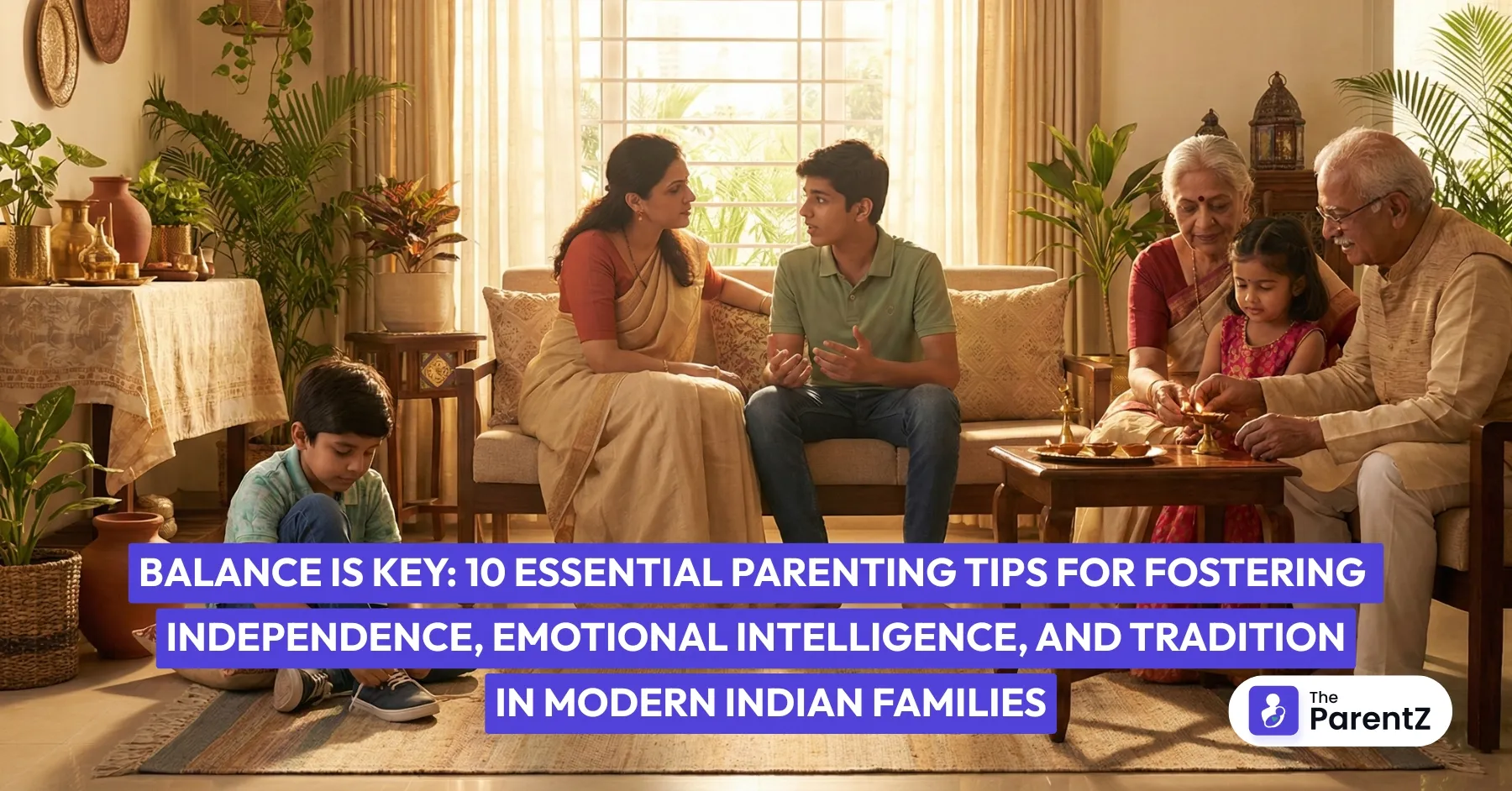Parenting today feels like walking a tightrope.
On one side, our parents are calling us too lenient. On the other hand, our kids roll their eyes when we talk about "our time." And somewhere in between, we're just trying to figure out if we're doing this right.
The world our kids are growing up in is nothing like ours. We grew up with Doordarshan and playing in the colony. They're growing up with YouTube, online classes, and friends they've never met in person. It's confusing for them, and it's confusing for us too.
But what we need to understand is that it's not about choosing between being a strict parent or a cool parent. It's about balance. And that balance looks different for every family.
Understanding Today's Reality
Your child is growing up in a world where:
- Information is everywhere (good and bad)
- Comparison happens every single day through social media
- Career options we never heard of are now actual jobs
- Mental health conversations are finally happening
- Global and Indian values are mixing in interesting ways
This doesn't mean our values are outdated. It means we need to translate them for today's world.
10 Essential Parenting Tips That Actually Work
1. Listen More Than You Lecture
Remember when your parents would give 30-minute lectures and you'd zone out? Our kids do the same. Instead, try asking: "What do you think about this?" You'll be surprised by their answers. Sometimes they already know what's right; they just need space to say it.
2. Let Them Make Small Mistakes
Forgot their water bottle? Let them feel thirsty. Didn't study for a test? Let them face the consequences. We can't always save them, and honestly, small failures teach them more than our lectures ever will.
3. Explain the 'Why' Behind Rules
"Because I said so" doesn't work anymore. And maybe it shouldn't. When you explain why 10 PM is the phone cut-off time (sleep affects their brain, mood, everything), they understand better. They might not always agree, but they understand.
4. Share Your Own Struggles
Tell them about your bad days at work. About how you also feel overwhelmed sometimes. When they see you're human too, they open up more. Plus, they learn that struggling is normal because everyone does it.
5. Respect Their Emotions, Even the Big Ones
When they're upset about something that seems silly to us, it's real to them. That fight with a friend? That Instagram post? It matters in their world. Say "I see you're really upset" instead of "It's not a big deal."
6. Keep Some Traditions, Skip Others
You don't have to do everything exactly like your parents did. Maybe you keep the festival celebrations but skip the "children don't interrupt" rule. Choose what adds value to your family, not what adds stress.
7. Create Phone-Free Zones
And this includes you. If we're asking them to keep phones away during dinner, we should too. Those work messages can wait 30 minutes. This time is for actually talking, not just sitting together while scrolling.
8. Encourage Their Interests (Even the Weird Ones)
So they want to be a YouTuber, a chef, or study marine biology? Don't immediately say, "It's not a stable career." The world has changed. Listen first. Research together. Many unconventional paths are actually doing well.
9. Teach Money Sense Early
Give them a small budget for something. Maybe their birthday party or their room makeover. Let them plan it, make choices, even overspend, and learn. Financial independence starts with understanding that money has limits.
10. Admit When You're Wrong
Said something in anger? Apologize. Made a wrong call? Say so. This isn't a weakness; it's showing them that good people take responsibility. Plus, they'll respect you more for being real.
Conclusion
Some days you'll get it right. Some days you'll lose your cool and say things you regret. Some days they'll hate you, and some days they'll surprise you with how thoughtful they are.
That's normal. You're not failing; you're parenting.
The goal isn't to be perfect. It's to be present. To create a home where your kids feel safe to be themselves, make mistakes, ask questions, and even disagree with you sometimes.
What works for your neighbor's kid might not work for yours. What worked for your first child might not work for your second. And that's okay.
Keep the conversations going. Keep adjusting. Keep learning together.
Because at the end of the day, balance isn't something you find once and you're done. It's something you keep working on, every single day.





Be the first one to comment on this story.